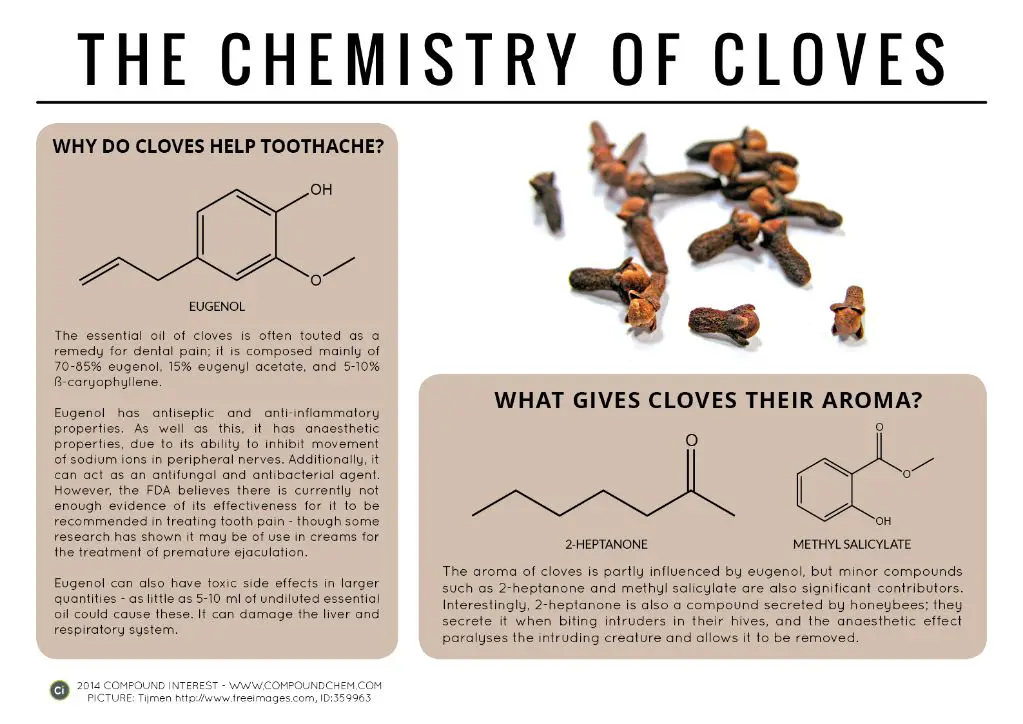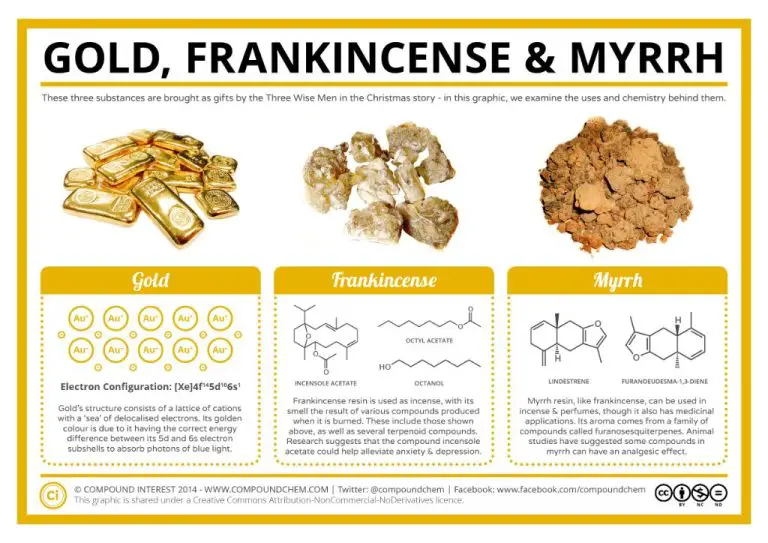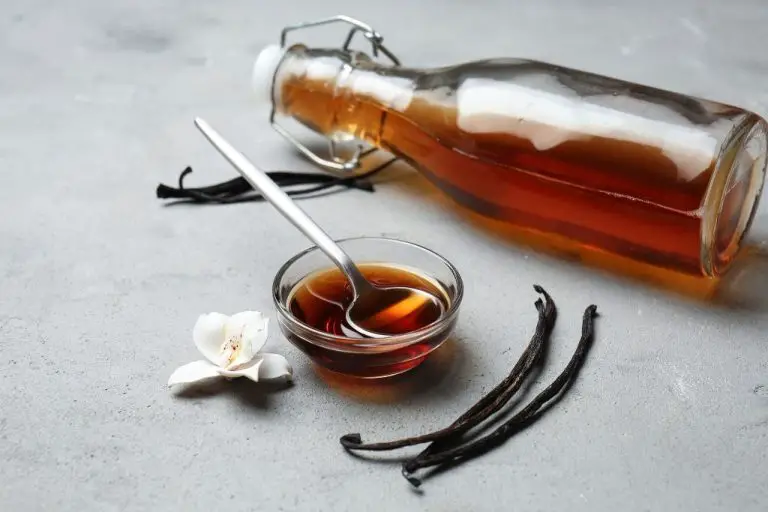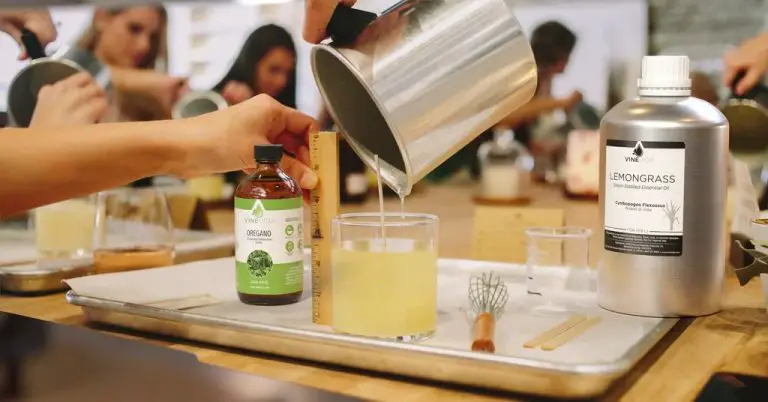Does Clove Smell Spicy?
What is clove?
Cloves are the aromatic flower buds of the Syzygium aromaticum tree which belongs to the Myrtaceae plant family [1]. They are indigenous to the Maluku Islands, or Moluccas, of Indonesia [2]. Cloves have a long history of culinary and medicinal use dating back to the Han dynasty in China where they were referred to as “chicken-tongue spice” due to their shape [3].
The Syzygium aromaticum is an evergreen tree growing up to 10-20 m tall with large oval leaves and crimson flowers in branched clusters. The cloves themselves are the unopened pink flower buds which are hand-picked before blooming. Once dried, the buds turn a rust-brown color and the stem attaches to the bud resembles a small nail, from which the English name derives.
Cloves have a strong, warm, sweet and spicy aroma and flavor. Their essential oil contains compounds like eugenol, eugenol acetate, and caryophyllene which give cloves their distinctive taste and fragrance. Cloves are used as a spice to flavor many foods, especially curries, meats, bakery products, and beverages. They are also used in traditional medicine and dentistry due to their anesthetic and antiseptic properties.
Active compounds in clove

Clove contains many active compounds that contribute to its distinctive aroma and taste. The primary active compound is eugenol, which makes up 50-90% of the essential oil of clove (Jirovetz, 2006). Eugenol is responsible for the characteristic smell and flavor of clove. It has been used for its numbing and anti-inflammatory properties in dentistry. Eugenol is classified as a phenylpropene, which is a type of aromatic compound.
Other important compounds in clove include acetyleugenol and β-caryophyllene. Acetyleugenol makes up 5-20% of clove oil and adds to its spicy aroma. It is produced by the acetylation of eugenol. β-caryophyllene is a terpene found in many essential oils such as black pepper, rosemary, and cannabis. It has a woody, spicy scent and comprises 2-15% of clove essential oil (Haro-González, 2021). β-caryophyllene contributes to clove’s peppery aroma.
In summary, the major aromatic compounds in clove are eugenol, acetyleugenol, and β-caryophyllene. Of these, eugenol predominates and largely determines the distinctive spicy smell of clove.
How smell works
The sense of smell begins when odor molecules bind to specialized olfactory receptors within the nose. According to the National Institute on Deafness and Other Communication Disorders (NIDCD), humans have about 400 of these olfactory receptor types that allow us to detect approximately one trillion different odors.
The olfactory receptors are located in a small patch of olfactory epithelium in the back of the nasal cavity. When odor molecules bind to the olfactory receptors, signals are transmitted to the brain via the olfactory nerve which has connections to the olfactory bulb.
The olfactory bulb acts as a relay station, passing the signals on to other parts of the brain including the amygdala and the hippocampus, areas involved in emotion and memory. This allows the brain to identify the smell and elicit an appropriate perceptual, emotional or physiological response.
According to the Queensland Brain Institute, pattern recognition is fundamental to the sense of smell. The combination of receptors activated creates a smell ‘fingerprint’ that the brain uses to perceive and interpret the specific smell.
Spicy Aroma Perception
The spicy aroma of clove is primarily due to stimulation of the trigeminal nerve rather than olfactory receptors in the nose. The active compounds capsaicin and piperine activate the trigeminal nerve, which senses chemical irritation and heat. This creates a burning, pungent sensation that the brain interprets as “spicy.”
Capsaicin is found in high concentrations in chili peppers and piperine is found in black pepper. Both bind to TRPV1 receptors on trigeminal neurons and cause a rapid influx of calcium ions, triggering an action potential and signaling to the brain. At high enough concentrations, capsaicin and piperine can activate these neurons and produce a hot, spicy sensation even in the absence of olfactory input.
The eugenol in clove binds to the same TRPV1 receptors, providing its characteristic pungency. Along with stimulation of trigeminal fibers, olfactory receptors detect the sweet, aromatic components of clove’s smell profile. Together, this creates a smell humans describe as warm, sweet, and spicy.
[Source: https://askabiologist.asu.edu/explore/sense-smell]
Clove aroma perception
The characteristic aroma of clove is primarily due to the compound eugenol. Eugenol makes up 72–90% of the essential oil extracted from clove buds (Source). Eugenol has a warm and pungent aroma that stimulates the olfactory senses.
When inhaled, eugenol binds to receptors in the nose that detect spicy and pungent odors. This triggers nerve signals to the brain that are interpreted as the warm, peppery smell typical of cloves (Source). The pungency from eugenol sets clove apart from other sweet spices and gives it its distinctive spicy aroma.
Clove Aroma Described
The aroma of clove is often described as warm, sweet, and spicy. The spiciness is similar to other pungent spices like cinnamon, nutmeg, and ginger, with an intense aroma and flavor[1]. However, clove has a more complex aroma compared to these other spices, exhibiting a sweet, floral undertone in addition to the spicy notes[2]. This combination of sweet and spicy make clove unique. While cinnamon has a brighter, hotter spiciness, clove is often described as a warmer, more subtle spice. The sweetness rounds out the spicy aroma to create a rich, full scent.
Clove Smell Intensity
The intensity of clove’s smell depends greatly on the amount and concentration present. In small quantities, such as an individual clove bud, the aroma may be quite subtle. However, in high concentrations, such as clove essential oil, the smell can be extremely potent and overpowering.
Clove buds, powder, and oil all contain the compound eugenol, which gives clove its distinctive spicy, warm smell. The highest concentration of eugenol is found in clove essential oil. Only a tiny amount of this oil is needed to make its presence abundantly clear. The smell can be piercing and almost medicinal when smelled up close or in excess.
Foods and products containing small amounts of clove, such as a pinch of ground clove or clove studded into an orange or ham, tend to have a gentle, pleasant, spicy aroma. Larger amounts of clove can become nose-tickling and almost bitter smelling. Mouthwashes, toothpastes, perfumes, soaps and aromatherapy products will have a stronger clove smell depending on the concentration of clove oil included in their formulation.
Ultimately, clove’s smell intensity shifts dramatically depending on the quantity present. In small doses it smells sweet and enticing, while too much can be overpowering and harsh.
Clove smell preferences
There are cultural and personal differences when it comes to preferences for the smell of clove. Some people find the warm, spicy aroma of clove to be pleasant and inviting, while others may find it to be too strong or overwhelming, especially when used in excess.
In cuisines like Indian and Middle Eastern, cloves are often used in curries, rice dishes, marinades, and baking. However, cloves tend to be used sparingly even in these cuisines, as their pungent flavor can easily dominate. Other cultures rarely use cloves in savory cooking at all. For example, cloves are uncommon in East Asian cuisines.
On an individual level, personal taste plays a big role. Some enjoy accentuating the flavor of pumpkin pie or mulled wine with a touch of clove, while others find even a small amount makes these too spicy. Sensitivity and preferences for cloves can change over time as well. Pregnant women, for example, often report increased sensitivity to the smell of cloves.
Overall, there is no universal consensus on the enjoyability of clove aroma. It ranges from a beloved scent to an overpowering one, depending largely on culture, individual taste, and context.
Health Effects
Cloves have powerful antioxidant and antimicrobial properties that can benefit health in several ways. The primary active compound in cloves is eugenol, which has been shown to act as an antioxidant that reduces oxidative stress and inflammation in the body (Source). Research indicates that the antioxidants in cloves can support liver health, improve insulin sensitivity, and reduce heart disease risk factors like high cholesterol and triglycerides.
The antimicrobial effects of cloves may also promote oral health by killing harmful bacteria in the mouth. Some studies suggest that gargling with clove water or using clove oil can reduce gum inflammation, plaque buildup, and bad breath (Source).
However, cloves can be toxic in very high doses. Consuming more than 5 grams of cloves daily may cause liver damage. Pregnant women should also avoid cloves, as excess intake has been linked to uterine bleeding and miscarriage. Overall, cloves are safe and beneficial when consumed in moderation as part of a balanced diet.
Conclusion
In summary, clove has a distinct aroma that is often described as warm and spicy. The main aromatic compounds in clove are eugenol, eugenol acetate, and beta-caryophyllene, which give it its characteristic scent.
Clove’s aroma arises when these volatile compounds bind to receptors in your nose, sending signals to the brain that are perceived as spicy. However, the intensity of clove’s spicy scent can vary based on the amount and quality of the essential oils, method of preparation, and personal sensitivity.
While many find clove’s warming fragrance pleasant, others may perceive it to be slightly medicinal or overpowering. Clove scent preferences are subjective and tied to past experiences, culture, genetics, and other factors. Despite personal variability in smell perception, most would agree that clove has an unmistakably pungent, spicy aroma.




